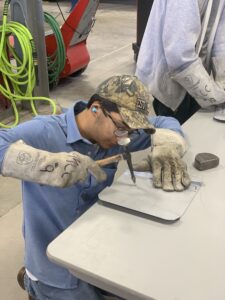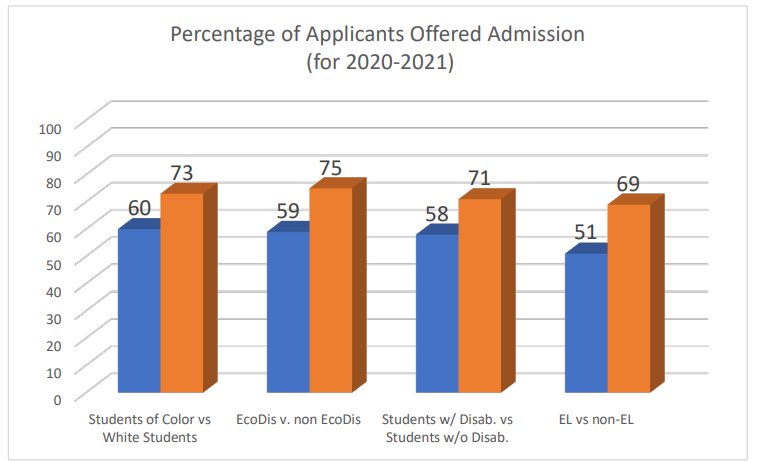
Coalition: Minority students aren’t given opportunities to enter trades
By onEducation
The Vocational Education Justice Coalition has filed a complaint against the U.S. Department of Education, alleging some students are being denied trade school opportunities.
In its 181-page complaint, the coalition alleges that the Massachusetts Department of Elementary and Secondary Education (“DESE”) of utilizing “admissions criteria that disproportionately and unjustifiably exclude students from vulnerable populations.”
It said those being forbidden an opportunity to study trades are the type of students that could stand to benefit the most from being provided a path to well-paying professions such as ones in collision repair. Such programs have proven to be particularly valuable to students of color, English learners and low-income families, the coalition said.
“The unique hands-on, project-based learning model utilized in [Career Vocational Technical Education (CVTE)] can also catalyze entrance into post-secondary education, particularly for those students who may have struggled in and disengaged from the traditional academic environment and who have perhaps never considered admission to college as realistic or attainable,” the complaint says. “Effective CVTE prepares students to graduate career- and college-ready by providing a comprehensive understanding of and strong experience in all aspects of an industry, as well as challenging and rigorous integrated academic/technical instruction aligned to state standards.”
Students are admitted to trade schools based on grades, attendance, guidance counselor recommendations, and discipline, with schools accepting applicants with the highest rankings, according to the complaint.
“Numerous families and community organizations, including Complainants, have documented the problem and proposed solutions that would bring DESE in line with governing civil rights law. However, DESE has persistently failed to properly interpret the civil rights laws and has allowed CVTE schools and programs to continue using unvalidated criteria that disproportionately exclude students in protected classes.
“The result is public school admissions processes that begin to resemble those at selective private schools—where students are ‘rank ordered’ on various exclusionary criteria and then offered admission based on their point score.”
The coalition said an admission analysis from the 2020-2021 school year found students of color who applied to CVTE states were accepted at “far lower rates” than white students. According to its research:
-
- Students from economically disadvantaged families had a 59% admission rate, compared to a 75% admission rate for those with economically advantaged families English learners had an admission rate of 58%, versus a 69% admission rate for English speakers
- Students with disabilities had a 58% admission rate, versus a 71% admission rate for those without disabilities.
“Any student who successfully completes middle school should have an equal shot at admission to a vocational education program,” Andrea Sheppard Lomba, coalition member and executive director of United Interfaith Action of Southeastern Massachusetts said in a statement to Boston public radio station WBUR. “Rank-ordering students based on their grades or attendance, and only admitting the top students, is antithetical to the whole purpose behind vocational education.”
The DESE did not respond to Repairer Driven News’ request for comment by deadline.
The allegations come as the repair industry faces a skilled worker shortage, and ongoing mass layoffs hit automakers. Rivian is planning to scale back its workforce by 6%, Reuters first reported, with other automakers such as Ford and GM cutting jobs as they refocus on producing electric vehicles.
It’s possible some of those affected by automaker layovers could land in the collision repair industry, where they could apply existing skills in a well-paying sector with long-term career prospects.
Chris McCarthy, global transportation lead at management consulting firm North Highland, told Business Insider that laid-off automotive professionals could find employment elsewhere in the industry.
“We’re seeing layoffs in one area and growth in another,” McCarthy told Business Insider. “The auto industry still has a great need for employees with skills in software programming and engineering.”
IMAGES
Featured image: A “College for Teens” summer camp participant works on a project at Metropolitan Community College in 2019. (Credit: Joe Baker/Metropolitan Community College)
Secondary image: The Vocational Education Justice Coalition

